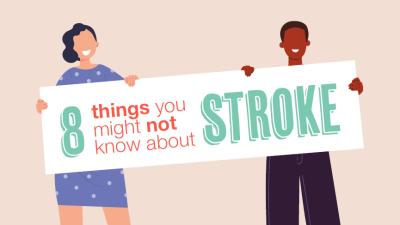 Imagine you're at the top of your game professionally in your 40s and you're suddenly dealing with the onslaught of debilitating medical symptoms. It's embarrassing. It's upsetting. It's frightening.
Imagine you're at the top of your game professionally in your 40s and you're suddenly dealing with the onslaught of debilitating medical symptoms. It's embarrassing. It's upsetting. It's frightening.
Please take five minutes to read about menopause in this blog, no matter your gender and age.
In this article, we'll hear from Posturite's Neurodiversity Coach Emma Wee. She supports women at work with Menopause Strategy Coaching to put in place simple, practical adjustments which make them feel more comfortable and able to manage their work, despite the menopause symptoms. Posturite provides a range of enablement services, to help employers create equal workplaces.
Some of you reading this won't know the difference between perimenopause and menopause. That's OK, I didn't either, despite being a woman in her 40s. We're woefully ill-informed!
Perimenopause is the transition time before your menopause, and usually lasts several years. Symptoms are caused by the changing levels of hormones in the body. Menopause is the time when your periods actually stop, and the NHS reports that periods usually stop between the ages of 45 and 55. Perimenopause and menopause affects trans women too, and some people are affected much earlier in their lives, due to cancer treatment or having another condition. There are currently 4.4 million menopausal women working in the UK.
Neurodiversity Coach Emma Wee is Institute of Leadership and Management (ILM) qualified, but feels the 6,000 hours of life and career coaching she's delivered, the years of experience working in the neurodiversity field and the personal lived experience of perimenopause give her the best background to successfully help women - and lend a sympathetic ear.
Q: Emma, what joys can women potentially expect from the menopause?
"Insomnia is a common symptom. So if you're not sleeping, then you're going to be knackered throughout the day. And therefore that has a massive impact on everything else.
'Brain fog' is experienced by some women – so not being able to hold processes in your brain in the way that you used to. Memory and concentration are affected by the perimenopause. There's a huge drop in confidence when you stop being able to do the things that you previously used to be able to do. The brain's going off in so many different directions that it can't steady itself. Fortunately, your brain will go back to the level it was after all the hormones have stopped mucking about!
Quite often one of the impacts of perimenopause is an increase in anxiety.
Some women have real challenges around self-regulation – a kind of emotional upheaval. Women's 'bandwidth' for emotional processing can change. They don't have the bandwidth to deal with other people's stuff anymore. And it's a tipping point. The hormonal demands on the body strip away the resources from a woman's mental and emotional 'banks', if you like.
There's also the embarrassment at work if you're going through hot flushes or have really extreme periods."
This list of symptoms above is not exhaustive (emphasis on the 'exhaustive'). Some women in their 40s and 50s also experience hair loss or thinning, headaches or migraines, frequent and sudden urge to urinate, occasional leakage of urine, joint stiffness and aches, recurrent urinary tract infections, tinnitus and more. Irritability and mood swings could mean that a woman's relationships with others at work are affected by uncharacteristic behaviour. Women can share their experiences on a forum such as the Perimenopause Hub on Facebook.
Emma says "With all these frightening symptoms, I think it's really important to talk about the issue and for another woman to just go 'You're not broken. It's fine.' Nobody really acknowledges it. You know, we're told about our periods and then that's pretty much it! You know, menopause is not really acknowledged to be something that can be supported. Women that don't have any sort of symptoms from the menopause are in the very small minority. It's just that no one talks about it."
Yes, and as Davina McCall says in her Channel 4 'Sex, Mind and the Menopause' programme "In workplaces across the country, women are hiding what is really happening to them." She talks about women just 'sucking it up' and not seeking out professional medical support for their perimenopausal suffering.
Q: Did HRT actually work well for you, please Emma?
"Yes, I've been perimenopausal for seven years. It was only last year that I started HRT, partly because I thought that none of my symptoms were impacting for long enough to warrant HRT. And now it has really helped me – it's been transformational. Basically, I had got to the point where I was bone crushingly exhausted; I decided that something was seriously, seriously wrong with me. So I had my thyroid checked went for a hormone test as well. And it turned out I had issues with both."
Hormone replacement therapy (HRT) replaces hormones that are at a lower level as you approach the menopause, and is a treatment to relieve menopausal symptoms. "Treatments are safe, effective and readily available" say The Menopause Charity, and women can discuss their personal circumstances with their GP. The ways of taking HRT include tablets, skin patches, gels and creams.

In addition to medical help, perimenopausal women can benefit from coaching, to uncover small adjustments to working practices that they and their managers can implement.
Q: How much menopause coaching might a woman need, to make a difference at work?
"Three or four sessions of two hours each is a good number for the menopause strategy coaching. I usually coach the women online in a video call, which works well as they can be at home where they can talk freely and feel comfortable. I offer a choice of individual or group sessions, and the employer sets up and pays for the coaching using their Posturite account."
Q: What might you cover in a session?
"My menopause coaching sessions tend to be a mix of the theory and practical. So someone's coming to me and saying 'I've got this huge project and I just don't know how to start it'. We'll break it down. We'll create a timeline. This kind of coaching is very much about the what, not the why something's happening, it's very tangible.
I look at time management and stress management, for example. I help women in emotionally draining roles, perhaps in healthcare or social work, to avoid exhaustion and burnout to sometimes see their work as a transaction, not a relationship, to stop trying to 'rescue' everyone. They can be sympathetic of course, but draw a line so they're better able to cope.
The women don't have to disclose their symptoms to their colleagues or make themselves vulnerable. I discourage them from saying 'I can't do this because of X', instead they can say 'What works best for me is this'. It's about providing a solution so that the manager will say 'Yeah, that's fine. That's a good idea.'
One of my clients is a female employee from Motability. Here's her feedback:
"I have learned so many tools and strategies to help me in my day-to-day role whilst struggling with the menopause, it's been fantastic. My main struggles have been brain fog, fatigue, headaches and visual disturbances - they massively impacted my ability to do my job and maintain my stats. But these workshops helped me with tools that I can use to help me cope on those bad days. The business has now made changes – such as adjustments to average handling time for cases - and it has all made a huge difference to me and my ability in my role."
I seek to suggest the simplest changes which can yield massive differences in terms of a woman's own productivity, how efficient they are in the workplace, and also their confidence. It has been such a huge relief for so many women to understand why something's happening and that they're not going mad, that there is a way of being able to support themselves.
I see perimenopause as an acquired neurodiversity, and there's many similarities in the needs of a neurodiverse person that I coach to a menopausal woman. Indeed it's not uncommon to be both! I'm a specialist in neurodiversity, and I am autistic myself. I don't coach the condition, I coach the impact. You know, the things that work for the neurodiverse are actually good practice for the non-neurodiverse. Women don't have to a be made to feel as though they're literally on the scrapheap with a tiny bit of support. With only a couple of coaching sessions, it's just made all the difference. It's really just having the time and space to reflect on what they need."
Q: Do you think there is increased sympathy and decreased embarrassment yet about menopause?

"To be honest, no. There are very few 'male allies' and actually I don't think there is decreased embarrassment yet from the female population either. I'm still talking to women on an individual basis where they're terrified of saying anything."
Wow. I had expected a more positive answer. The media coverage of menopause campaigner Davina McCall's documentaries and current trending menopause hashtags #MenopauseRevolution and #OwnYourMenopause had led me to believe that we were starting to enjoy a far more favourable situation for menopausal women in the UK.
"There has been progress" says Emma. "The government's 'UK Menopause Taskforce' was created in February 2022 and is led by MP Carolyn Harris. In May 2022, the government issued a 'Serious Shortage Protocol' giving pharmacists the flexibility to substitute prescribed HRT products with suitable alternatives if they're out of stock."
Also, 22,000 doctors and nurses voluntarily took up new training in treating menopause in the last two years, since the topic has such scant attention in current obligatory medical training. The British Menopause Society points out that "Many women's first 'port of call' for menopause related issues is their GP, and therefore it is very important that GPs are aware of the range of issues from the menopause and their impact."
But there is still embarrassment and lack of knowledge. Kate Muir's book is entitled 'Everything You Need to Know About the Menopause (but were too afraid to ask)' and promises 'answers to all those questions that have been hidden behind a veneer of misplaced shame, bad science and centuries of patriarchy.'
Experiences of perimenopause
My research has been revealing personally. I put out the question on my Facebook account 'How has the menopause or peri menopause affected you at work?'. After an initial wall of silence, one brave friend Michelle commented "I could write you a book!" and then many more female friends responded… with horror stories, quite frankly. There was much gratitude from those who run their own businesses that they could manage their symptoms in private at home, and adjust their hours easily. The lockdowns too had been popular amongst perimenopausal women.
Sharon, a pharmacist from East Sussex, even took phone snapshots for me of the times that she woke up "drenched and needing to use a fan" due to night sweats the previous night: 02:13, 02:24, 02:46, 03:22, 04:45, 05:49. "I'm four years into perimenopause, so it started when I was 46. I can go six months with no issues then hit spells of night sweats."
What not to do regarding menopause in the workplace
It's recommended that managers:
- Don't ask a woman if she's menopausal. Emma says "It's not for anyone to make that assumption and it's not for them to diagnose. It's about saying in private 'What I'm noticing is XYZ. Do you need some additional support around that?'
- "Employers should not patronise women with menopause training delivered by ancient male GPs" says Georgia, a public sector Communications Manager from Essex.
- Don't make embarrassing public statements that single people out. "They don't want to be seen as different" says Emma.
- Don't allow any form of teasing or 'banter' about menopause.
What can managers do to support women through menopause at work?
- Read up a little or watch a documentary about menopause so you're more informed. A key fact for everyone to know is that menopause is not just for Age 50+ women.
- Be sensitive and aware. Look for opportunities to boost a colleague's confidence at work.
- Ask for volunteers to become 'Menopause Wellbeing Champions' or Advocates in your organisation, in the same way you might have Mental Health First Aiders in your team. This would be someone who is comfortable to talk about menopause and offer support, and could be someone who has personal experience of menopause.
- Enable all employees to feel comfortable about popping out to the loo at any point in a meeting.
- Consider allowing flexible start times, if practical. This could be helpful to a woman who is sleeping badly.
- If you have a staff uniform, evaluate if it's comfortable to wear for someone who gets hot.
- Allow all employees to order themselves a fan through a procurement services portal, rather than needing to gain approval from a line manager.
- You could take menopause-related risk assessments, especially looking at any work-related stress that could be exacerbating a woman's symptoms.
- Become 'Menopause Friendly' accredited – a step that John Lewis & Partners, NatWest Group, Sainsbury's, Lloyd's Banking Group and many more have taken.
- Sign the Menopause Workplace Pledge.
- Register your interest in gaining The Menopause Charity Workplace Kitemark.
- Hold an online talk about the menopause: HSBC held one attended by more than 500 people in which both male and female senior managers shared their experiences of their menopause 'journey'.
- Offer women menopause strategy sessions with an expert, in the same way you would provide reasonable adjustments for another health condition or disability.
These are just a few ideas, with the aim of prompting you to explore the possibilities in more detail.
Is having a menopause policy a good idea?
Yes: "A separate menopause policy will provide clarity for both management and employees, for example, by setting out key rights and responsibilities, and signposting staff to sources of support" says the Davidson Morris employment team. "This can help to inform individuals of what's expected of them, and what they can expect in return, in the event that they're going through the menopause."

Businesses can retain the contributions of skilled women in their workforce and avoid resignations by making only a minimal financial investment and some investment in time and care. Professions including teaching have sadly seen women feel their only choice was to leave the jobs they loved due to the menopause. Let's give these women more support in their jobs.
Menopause Coach Emma Wee says "We can dispel the myth that reasonable adjustments cost time and money - they don't most of the time. It's just about having good practice in place."
Inspirational and experienced women
Women in their 40s and 50s are representing us in leading roles in our society. From media star Zoe Ball (highest-earning female at the BBC) to Dr Mahasweta Saha, Marine Chemical Ecologist; from local government head Joanne Anderson, Mayor of Liverpool, to business titan Jane Fraser, CEO of Citi, skilled women with 25 years of valuable experience are people you want on your team. The dedicated female educators, caregivers, social workers, police and health workers of the UK have hugely important contributions to make after the age of 40. Women and trans women in their 40s and 50s need and deserve support at work to cope with the menopause, so let's put a stop to the suffering in silence.
To find out more about menopause strategy coaching from Posturite, please email [email protected]. Posturite offer a one-to-one consultancy service to develop personalised workplace strategies for individuals with menopausal symptoms. They spend time with the individual in order to gain a thorough understanding of their role and the key tasks that they are expected to perform. Following this, they will suggest a range of practical coping strategies and support around stress management, time management, concentration and organisation skills that may have been impacted by perimenopausal and menopausal symptoms. Posturite's enablement expertise covers a number of areas to help businesses fulfil their duties under the Equality Act.










